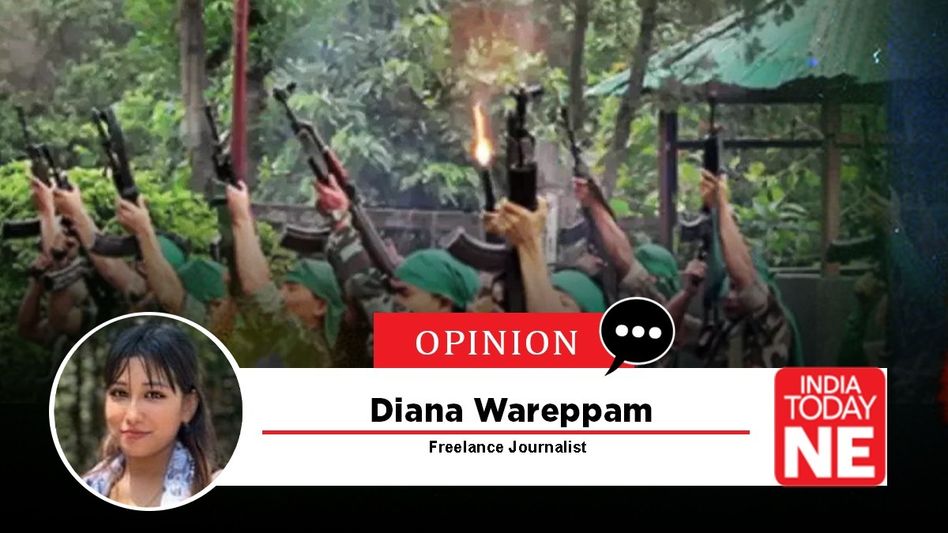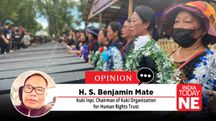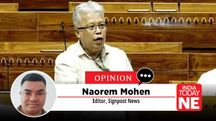From Ceasefire to Crisis: How the SoO Agreement Became a License for Militancy
The SoO accord began to unravel after the Manipur government, citing repeated violations of ground rules and illegal encroachments on forest land, formally withdrew from the agreement with two key groups—the Kuki National Army (KNA) and the Zomi Revolutionary Army (ZRA)—on March 10, 2023.

For nearly two decades, the Suspension of Operations (SoO) agreement, signed in 2008 between the Government of India, the Manipur government, and 25 Kuki militant groups under the umbrella of the Kuki National Organisation (KNO) and United Peoples’ Front (UPF), has been touted as a pathway to peace in Manipur. The process began informally in 2005, when several Kuki militant groups initiated talks with the Indian Army. Yet, the evidence is clear: this ceasefire pact is not only failing but actively undermining stability. The Kuki militant groups, far from adhering to the SoO’s ground rules, continue to recruit cadres, amass illegal arms, and engage in violent and criminal activities—all while receiving financial support and resources from the Indian government. It is time for the Centre to confront this reality and abrogate SoO, as its persistence is an affront to both justice and public trust.
The SoO accord began to unravel after the Manipur government, citing repeated violations of ground rules and illegal encroachments on forest land, formally withdrew from the agreement with two key groups—the Kuki National Army (KNA) and the Zomi Revolutionary Army (ZRA)—on March 10, 2023. This decision followed the state’s earlier move in February 2023 not to extend the agreement. However, despite the Manipur government's withdrawal, the Union Ministry of Home Affairs (MHA) chose to continue the dialogue process and uphold the agreement, creating a troubling rift between the Centre and the state. Further intensifying this divide, on February 29, 2024, the 12th Manipur Legislative Assembly—where the Bharatiya Janata Party (BJP) holds a majority—passed a unanimous resolution opposing any extension of the SoO agreement with the United Peoples' Front (UPF) and Kuki National Organisation (KNO). Ignoring this resolution would not only set a dangerous precedent of overriding a democratically elected state's will but may also raise serious constitutional concerns, undermining federal principles and the democratic mandate of the people of Manipur.
The SoO agreement requires Kuki militants to remain confined to designated camps and prohibit any engagement in violence, recruitment, or possession of unauthorized arms. However, a series of incidents have revealed blatant violations. Recently the NIA arrested three Kuki militants in connection with a deadly attack on security forces that killed two personnel and injured several others in Moreh, Tengnoupal district, on January 17, 2024. Among those arrested were Thangminlen Mate, a member of Kuki Inpi Tengnoupal (KIT); Kamginthang Gangte of the Kuki National Army (KNA); and Hentinthang Kipgen, associated with the Village Volunteers group in Churachandpur district.
In September 2024, a major turning point occurred with a gunfight in Jiribam district that led to the killing of three Kuki militants from the Kuki Liberation Army (KLA): Seiminlen Khongsai, Haogoulen Doungel (31), and Nehboithang Haokip (26). Again, in March 2025, a joint operation by the Kangpokpi district police and the Central Reserve Police Force (CRPF) resulted in the arrest of four cadres of the Kuki National Front (President), or KNF-P, for alleged involvement in extortion activities along National Highway-2. The arrested individuals—Lungousem Kipgen (29), Letminlal Kipgen (25), Satminlun Tuboi (24), and Thanggoulun Kilong (27)—were all underage when the SoO was signed in 2008, strongly indicating they were recruited later, in direct violation of the agreement. This also raises serious concerns about the recruitment of minors, which contravenes both the ceasefire pact and international human rights obligations.
Beyond recruitment and violence, Kuki militant groups have refused to comply with directives from the Governor, Ajay Kumar Bhalla, to surrender looted and illegal arms. While the valley has recovered nearly 75% of such weapons, a significant cache held by Kuki-Zo groups remain unaccounted for. Credible reports also link SoO-affiliated militants to the illicit drug trade, either through direct involvement or by facilitating trafficking networks, further destabilizing the region.
There are also reports of SoO leaders like German Haokip, commander of KNF (MC), now running separate non-SoO militant group— the United Kuki National Army (UKNA)—in gross violation of SoO norms. Over the past two decades, these SoO camps, located across Manipur's hill districts, have become financial hubs. Illegal taxes collected, running into hundreds of crores of rupees, are reportedly used to purchase arms and recruit new cadres. Political representatives aligned with these groups often echo militant ideologies, blurring the line between legitimate governance and insurgent interest. These violations are not isolated incidents, but part of a consistent and troubling pattern.
Despite all this, the Centre resumed talks with Kuki-Zo representatives on June 9 and 16, 2025, following May 16, 2025 resolution by Kuki-Zo MLAs and Civil Society Organisations (CSOs) demanding continued dialogue with SoO groups. This resolution, which openly aligned political leaders with armed factions, has deepened public distrust. Talks on June 19, 2025, proposed closing 7 of the 14 SoO camps located near Meitei-inhabited areas, recovering looted arms, and reopening National Highways-2 and 37. Yet, the Centre’s failure to enforce stricter monitoring of camps, carry out serious disarmament drive, or penalize violators has only emboldened the Kuki militant groups, obstructing any genuine peace process.
The SoO’s broader implications for Manipur are dire. The agreement’s failure has deepened ethnic tensions, eroded state authority, and fostered a climate of impunity. The Kuki-Zo demand for a separate administration, backed by armed groups, threatens to fragment the state further. Meanwhile, the Centre’s insistence on dialogue with non-compliant groups alienate communities that have suffered from militant violence. The ethnic cleansing of Meiteis by Kuki-Zo groups from Churachandpur, Moreh, and Kangpokpi in 2023, combined with the SoO’s collapse, has left Manipur at a crossroads. Half-measures can no longer suffice. The Government of India must confront the SoO’s failure head-on. The agreement must either be overhauled with rigorous enforcement—including regular camp inspections, mandatory arms surrender, and a complete halt to recruitment. Maintaining a broken pact is not just ineffective but dangerous, as it emboldens militants, undermines governance, and erodes public faith. Revoking the SoO carries risks, including potential escalation, but these must be weighed against the cost of inaction: a region trapped in a cycle of violence and division.
DO NOT MAKE PERPETRATORS OF VIOLENCE “PARTNERS OF PEACE.”
What message is the Government of India attempting to convey with its current approach? That groups involved in serious violence and disruption of public order can violate ceasefire terms with impunity, yet still be rewarded with continued negotiations and concessions?
Despite mounting and credible evidence of repeated violations of the Suspension of Operations (SoO) ground rules—including recruitment, extortion, and violent crimes—the decision to persist with peace talks and offer political legitimacy to such groups raises grave concerns. It is deeply troubling that instead of enforcing accountability, the government appears to be engaging with these groups on terms that undermine the rule of law. The notion of seeking their permission for “free movement within the state” or negotiating peace while turning a blind eye to continued violence sets a dangerous precedent for governance and national security.
A new approach is needed—one that prioritizes accountability, disarmament, and inclusive dialogue. This could involve bolstering security measures, engaging neutral mediators, and addressing socio-economic grievances that fuel militancy. The Centre must also bridge the gap with the Manipur government, aligning policies to restore state authority. Most urgently, the Kuki militant recruitment crisis must be tackled through targeted interventions, such as rehabilitation programs for youth and stricter oversight of militant activities. Several voices oppose continuing the SoO, citing rampant violations and crimes by cadres that breach the agreement's ground rules. Recently, BJP spokesperson Michael Lamjathang Haokip also wrote to Prime Minister Narendra Modi and Home Minister Amit Shah, urging the abrogation of the Suspension of Operations (SoO) agreement with Kuki militant groups to restore lasting peace in the violence-hit region.
The state deserves a future free from the shadow of a failed agreement. The SoO, once a beacon of hope, has become a shackle, binding the state to a cycle of mistrust and conflict. The Government of India must act decisively—either by enforcing the pact with unwavering resolve or by charting a bold new path.
Copyright©2025 Living Media India Limited. For reprint rights: Syndications Today









